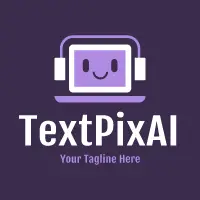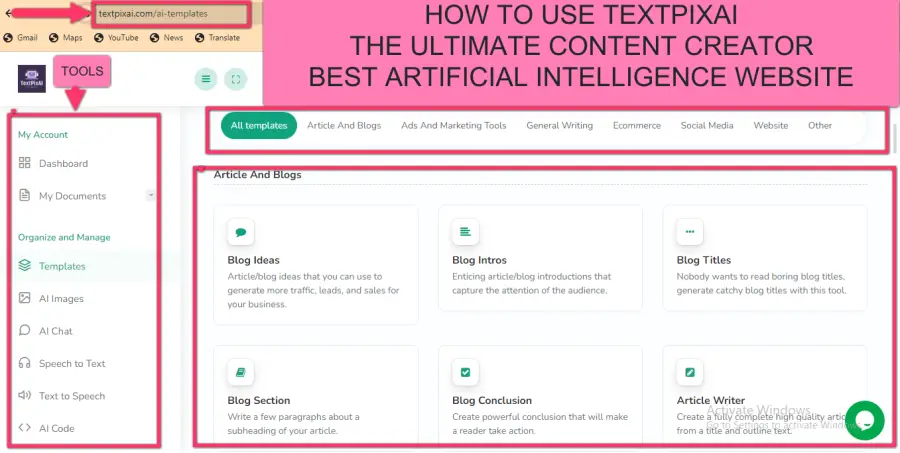AI in Healthcare Administration
Introduction
In the rapidly evolving landscape of healthcare, the role of healthcare administration is instrumental in ensuring the efficient functioning of healthcare systems. From managing patient records to overseeing billing and claims processing, healthcare administrators play a crucial role in the delivery of quality care. However, the traditional methods of healthcare administration often face challenges related to efficiency, accuracy, and resource allocation. This is where the transformative power of Artificial Intelligence (AI) comes into play, reshaping healthcare administration in profound ways.
You may also like to read:
Telehealth Technology - Revolutionizing Healthcare Delivery
Understanding Healthcare Administration
Healthcare administration encompasses a broad range of activities focused on managing the administrative aspects of healthcare delivery. This includes everything from managing electronic health records (EHRs) to handling billing and revenue cycle management. Effective healthcare administration ensures the seamless operation of healthcare facilities, which is essential for providing high-quality patient care.
The Significance of Efficient Healthcare Administration
Efficient healthcare administration is the backbone of any healthcare system. It directly impacts patient care, operational efficiency, and financial sustainability. Inefficient administrative processes can lead to delayed patient care, billing errors, and increased operational costs, ultimately affecting the quality of healthcare services.
Key Challenges in Traditional Healthcare Administration
Traditional healthcare administration methods are not without their challenges. These challenges include:
-
Manual Data Entry: The reliance on manual data entry in EHRs can lead to errors, data inconsistencies, and inefficiencies.
-
Billing Complexities: Billing and claims processing can be convoluted, with a high risk of billing errors and revenue leakage.
-
Administrative Workload: Healthcare administrators often spend a significant amount of time on administrative tasks, diverting their focus from patient care.
AI-Powered Administrative Tools
AI has made significant inroads into healthcare administration by offering innovative solutions to streamline administrative processes. These AI-powered tools enhance accuracy, efficiency, and the overall quality of healthcare administration.
Electronic Health Records (EHRs)
How AI Improves EHR Management
AI-driven EHR systems use natural language processing (NLP) to extract meaningful insights from patient records. This not only reduces the time spent on manual data entry but also enhances the accuracy and completeness of patient records.
Enhancing Patient Data Security
AI systems can bolster data security by detecting and alerting administrators to potential security breaches. This proactive approach helps protect sensitive patient information, ensuring compliance with data privacy regulations.
Revenue Cycle Management
Streamlining Billing and Claims Processing
AI-driven revenue cycle management tools automate billing and claims processing, reducing the likelihood of billing errors and ensuring prompt payment processing. This accelerates revenue collection and minimizes revenue leakage.
Reducing Revenue Leakage with AI
AI algorithms analyze billing data to identify potential discrepancies or underbilling, thereby preventing revenue leakage. This real-time monitoring enhances revenue cycle management and financial sustainability.
Workflow Optimization
Automation of Administrative Tasks
AI-powered workflow optimization automates routine administrative tasks, such as appointment scheduling, freeing up healthcare administrators to focus on more critical aspects of patient care and facility management.
Enhancing Staff Productivity with AI-Driven Solutions
AI-driven solutions assist healthcare administrators in managing their workload more efficiently. This not only increases staff productivity but also reduces the risk of burnout.
Data Analytics and Decision Support
AI's prowess in data analytics is harnessed in healthcare administration to drive data-driven decision-making and support healthcare providers and administrators in delivering high-quality care.
Leveraging AI for Data Analysis
Predictive Analytics in Healthcare Administration
Predictive analytics uses AI algorithms to forecast future healthcare trends, patient needs, and resource requirements. This information is invaluable for healthcare administrators in resource allocation and planning.
Real-Time Data Insights for Informed Decisions
Real-time data analytics powered by AI provide administrators with up-to-the-minute insights into patient flow, bed occupancy, and other critical operational metrics. These insights enable agile decision-making and resource optimization.
AI-Driven Clinical Decision Support Systems
Enhancing Diagnosis and Treatment Planning
AI-driven clinical decision support systems assist healthcare providers in making more accurate diagnoses and treatment plans by analyzing patient data and suggesting evidence-based recommendations.
Improving Patient Care Coordination
AI enhances patient care coordination by providing healthcare providers with comprehensive patient profiles and historical data. This facilitates more informed and personalized care plans.
Telehealth and Remote Monitoring
Telehealth and remote monitoring have gained significant traction, especially in the wake of global health crises. AI plays a pivotal role in the administration of these remote healthcare services.
The Role of AI in Telehealth Administration
Virtual Appointment Scheduling and Management
AI-powered chatbots and virtual assistants facilitate the scheduling and management of virtual appointments, ensuring seamless patient access to telehealth services.
Remote Monitoring of Patient Health Data
Wearable devices equipped with AI algorithms enable the continuous monitoring of patient health data, allowing healthcare administrators to track patient progress remotely.
Ensuring Telehealth Compliance and Data Security
HIPAA-Compliant Telehealth Solutions
AI-driven telehealth solutions are designed to adhere to strict healthcare regulations, such as the Health Insurance Portability and Accountability Act (HIPAA), ensuring the secure and private transmission of patient data.
Protecting Patient Privacy in Remote Care
AI-powered encryption and authentication mechanisms safeguard patient privacy during telehealth consultations, addressing concerns related to data security.
AI and Healthcare Regulatory Compliance
AI has a crucial role to play in ensuring healthcare organizations remain compliant with various regulations, making the administrative burden of regulatory compliance more manageable.
AI's Role in Maintaining Compliance
Automating Compliance Checks
AI automates compliance checks by continuously monitoring healthcare practices, ensuring adherence to regulations and guidelines. This proactive approach minimizes compliance-related risks.
Streamlining Regulatory Reporting
AI streamlines the process of regulatory reporting by generating accurate and comprehensive reports, reducing the administrative overhead associated with compliance documentation.
Addressing Ethical Considerations in AI-Powered Administration
Ensuring Fairness and Transparency
Healthcare organizations must prioritize fairness and transparency in the use of AI algorithms. Ethical considerations include minimizing bias and ensuring that AI-driven decisions align with ethical standards.
Ethical Use of Patient Data
The ethical use of patient data is paramount. Healthcare administrators must uphold the highest standards of data privacy and consent when employing AI in patient care and administration.
Benefits of AI in Healthcare Administration
The integration of AI into healthcare administration offers numerous benefits that impact both healthcare providers and patients.
Improved Efficiency and Cost Savings
AI streamlines administrative processes, reducing the time and effort required for tasks such as data entry and billing. This leads to operational cost savings and enhanced efficiency.
Enhanced Patient Experience
Patients benefit from faster appointment scheduling, personalized care coordination, and improved communication, leading to a more positive healthcare experience.
Better Decision-Making and Patient Outcomes
AI-driven data analytics provide healthcare providers and administrators with valuable insights, leading to more informed decision-making and ultimately better patient outcomes.
Challenges and Implementation Considerations
While the promise of AI in healthcare administration is undeniable, its successful implementation is not without challenges.
Overcoming Data Integration and Interoperability Issues
Integrating AI systems with existing healthcare infrastructure and ensuring interoperability with other systems can be complex and require careful planning.
Addressing Staff Training and Adoption Challenges
Healthcare administrators and staff may require training to effectively utilize AI tools, and organizations need to promote AI adoption culture.
Ensuring AI Systems Align with Organizational Goals
AI implementation should align with the overarching goals and mission of healthcare organizations. Ensuring this alignment is critical for the successful integration of AI in healthcare administration.
Future Trends in AI Healthcare Administration
The future of AI in healthcare administration is bright, with several exciting trends on the horizon.
Advancements in Natural Language Processing (NLP) for Better EHR Management
AI-powered NLP systems will continue to improve EHR management by enhancing the extraction and analysis of unstructured clinical text.
AI's Role in Population Health Management and Preventive Care
AI will play a pivotal role in population health management by identifying at-risk populations and enabling preventive care strategies.
AI-Powered Chatbots for Patient Engagement and Support
Chatbots equipped with AI algorithms will become more sophisticated, providing patients with personalized support and information.
The Potential of Blockchain Technology in Healthcare Administration
Blockchain technology offers the promise of secure, transparent, and interoperable healthcare data management, revolutionizing healthcare administration.
Conclusion
AI is transforming healthcare administration, making processes more efficient, patient-centered, and cost-effective. The integration of AI into healthcare administration is not merely a technological advancement; it represents a paradigm shift in how healthcare is delivered and managed.
Healthcare organizations must embrace AI as a strategic asset and invest in its implementation. By doing so, they can enhance the quality of patient care, improve operational efficiency, and ensure compliance with healthcare regulations.
The journey towards AI-powered healthcare administration is dynamic, with ongoing advancements and innovation. As technology continues to evolve, healthcare administrators have a pivotal role to play in harnessing the full potential of AI to benefit both their organizations and the patients they serve.
References
-
"Artificial Intelligence in Healthcare: Anticipating Challenges" - The Journal of Healthcare Information Management Read more
-
"Artificial Intelligence in Health Care: Anticipating Challenges Regarding Ethics, Privacy, and Bias" - Penn Bioethics Journal Read more
-
"The Role of Artificial Intelligence in Healthcare: A Structured Literature Review" - BMC Medical Informatics and Decision Making Read more







